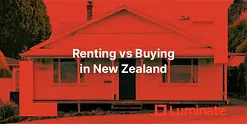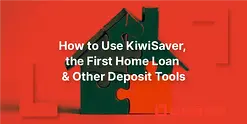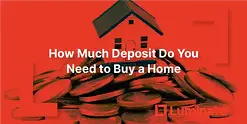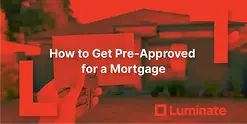Buy Now or Wait? Guide for NZ First-Home Buyers 2025
 By
Trent Bradley
·
17 minute read
By
Trent Bradley
·
17 minute read
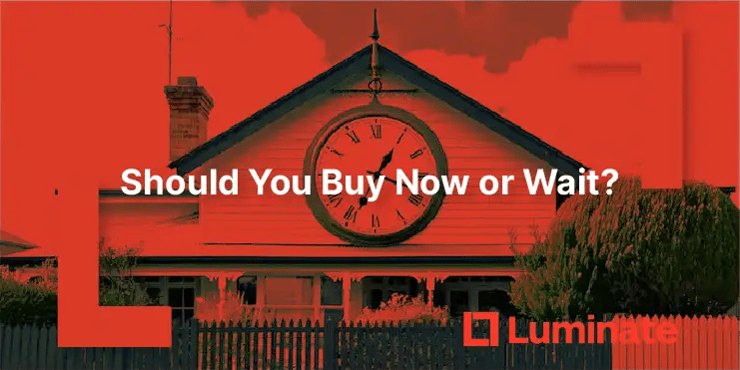
Buying your first home is a major life milestone, but deciding when to make the move can feel overwhelming. With headlines full of rising interest rates, shifting house prices, and ongoing uncertainty, it's common to wonder if now is the best time—or if waiting would be smarter.
Table of Contents
- The Challenge: Information Overload and Decision Paralysis
- Understanding Market Timing: Why Perfect Conditions Rarely Align
- The New Zealand Housing Market in 2025: Current Conditions
- Assessing Your Personal Financial Readiness: The Most Important Factor
- The Hidden Costs of Waiting: What Delaying Actually Costs You
- Why Some Smart Buyers Are Moving Now Despite Higher Rates
- When It Makes Strategic Sense to Wait
- The Real Comparison: What Does Buying vs. Renting Actually Cost You?
- Your Decision Framework: A Step-by-Step Process
- How Luminate Financial Group Helps You Decide
- Frequently Asked Questions About Buying Now vs. Waiting
- Take the Next Step: Get Expert Clarity
Key Takeaways
- Perfect market timing is a myth – Waiting for ideal conditions (low prices, low rates, no competition) rarely works because these factors never align perfectly; personal readiness matters far more than market timing.
- Waiting costs more than most buyers realise – Delaying 2 years while renting costs approximately $68,744 in rent payments plus $50,000+ in missed equity building, totalling over $100,000 in opportunity cost even if property prices stay flat.
- 2025 market offers genuine advantages despite higher rates – Current conditions include 10-20% lower prices from 2021 peaks, significantly less competition, better negotiating power, more time for due diligence, and realistic vendor expectations.
- Higher interest rates can be refinanced, but lost time cannot – Buying at 6.5% interest allows you to refinance when rates drop to 5%, but waiting means paying higher purchase prices; the strategy is to lock in lower prices now and refinance later.
- Five-year ownership breaks even, ten-year ownership builds substantial wealth – After 5 years of ownership, buyers are typically $176,400 better off than renters; after 10 years, the wealth gap exceeds $899,000 through equity building and appreciation.
- Strategic waiting requires specific, achievable milestones – Waiting makes sense only when: readiness score is below 6/10, major life changes are imminent within 6 months, you'd be dangerously financially stretched, or you can significantly strengthen your position in 3-6 months with clear action plan.
- Affordability stress tests reveal true readiness – Don't rely solely on bank approval; calculate whether you can comfortably afford payments if rates rise to 8%, maintain emergency buffer of 3-6 months expenses, and still have $500-1,000 monthly for discretionary spending and savings.
- Life stability trumps market conditions – Confirm you'll stay in the same city for 3-5+ years, have 6+ months employment stability, face no major relationship or career changes, and genuinely value ownership stability over rental flexibility before purchasing.
At Luminate Financial Group, we work with first-home buyers every day to help them cut through the noise and focus on what truly matters. This comprehensive guide will take you through all the factors you need to consider, so your decision is based on your own situation and goals rather than market headlines or fear of missing out.
The Challenge: Information Overload and Decision Paralysis
What you're probably hearing:
- "Interest rates are still high—wait for them to drop"
- "Property prices might fall further—be patient"
- "There's never been a better time to buy—act now!"
- "The market is unpredictable—nobody knows what will happen"
The result: Analysis paralysis. You're stuck between fear of making a mistake and fear of missing out.
The truth: There's rarely a "perfect" time to buy. The best time is when you're personally ready and can afford it comfortably, regardless of what the headlines say.
Let's help you figure out if that time is now, or if strategic waiting makes more sense for your situation.
Understanding Market Timing: Why Perfect Conditions Rarely Align
Everyone wants to buy at the ideal time—when prices are low, interest rates are favorable, and conditions feel perfect. In reality, perfect conditions rarely line up. Markets go through cycles. Rates fluctuate. Prices rise and fall. There's almost always a reason to wait a little longer.
The Market Timing Myth
The fantasy scenario:
- House prices at bottom of cycle
- Interest rates at historic lows
- Multiple properties available
- No competition from other buyers
- Your finances perfectly aligned
- Job security absolute
The reality: These conditions virtually never exist simultaneously. When one factor is favorable, others usually aren't.
Real-World Market Timing Examples
Scenario 1: Waiting for prices to drop (2021-2023)
- 2021: "Prices are too high, I'll wait for them to drop"
- 2022: Prices drop 10-15%, "They'll drop more, I'll keep waiting"
- 2023: Prices stabilize and start recovering
- 2024: Prices climbing again, missed the bottom
- Result: Paid 2 years of rent ($70,000+) and now paying more than 2021
Scenario 2: Waiting for interest rates to drop (2023-2025)
- 2023: "Rates are 7%, I'll wait for them to drop to 5%"
- 2024: Rates drop slightly to 6.5%, "I'll wait for 5%"
- 2025: Rates still 6-6.5%, but house prices up 10%
- Result: Lower rate doesn't compensate for higher purchase price
Scenario 3: Acting when personally ready (2024)
- 2024: "Rates are 6.5%, not ideal, but I'm financially ready"
- Bought $650,000 property with solid finances
- 2025: Property worth $685,000, built $50,000+ equity
- Result: Building wealth while others still waiting for "perfect" time
The lesson: Personal readiness beats perfect market timing.
We've Seen Too Many People Hesitate Too Long
Common regrets we hear:
- "We waited for prices to drop more and they went back up"
- "We paused to save a bigger deposit but prices rose faster than we saved"
- "We expected rates to drop but lending rules tightened instead"
- "We thought we were being smart but we just delayed building equity"
The key is not to wait for perfection, but to be ready when the time is right for you personally.
The New Zealand Housing Market in 2025: Current Conditions
By mid-2025, the New Zealand property market has stabilized significantly compared to pandemic peaks. Understanding current conditions helps contextualize your decision.
Market Overview: Where We Are Now
| Market Factor | 2021 Peak | 2025 Current | Trend |
|---|---|---|---|
| Interest rates | 2.5-3.5% | 6.0-6.8% | Stabilized at higher level |
| House prices | Peak | Down 10-20% from peak | Stabilizing/slight growth |
| Competition | Intense bidding wars | Moderate | Buyers have more power |
| Time on market | Days/weeks | Weeks/months | More time for due diligence |
| Lending rules | Very tight (CCCFA) | Slightly relaxed | Improving |
| First-home buyers | Priced out | Re-entering | More opportunity |
What This Means for First-Home Buyers in 2025
Advantages of current market:
1. Less competition and pressure
- No more desperate bidding wars
- Multiple offer situations less common
- Time to properly inspect properties
- Can negotiate on price and conditions
- Less emotional decision-making
2. More realistic pricing
- Prices corrected 10-20% from peaks
- Vendors have adjusted expectations
- Better value relative to 2021
- Properties sitting longer = negotiation power
3. Better selection
- More properties available
- Buyers not settling for "anything"
- Can be choosy about location, features, condition
- Time to find right property
4. Improved lending environment
- CCCFA rules slightly relaxed
- Banks more willing to lend
- Pre-approval processes smoother
- More first-home buyer friendly options
Challenges of current market:
1. Higher interest rates
- Mortgage rates 6-6.8% vs. 2.5-3.5% previously
- Monthly repayments 40-50% higher
- Must qualify at higher serviceability
- Less borrowing capacity per dollar of income
2. Stricter affordability tests
- Banks assess at higher test rates (8-9%)
- Must prove can afford significant rate rises
- Tougher to qualify despite lower prices
- Need stronger financial position
3. Economic uncertainty
- Job market softening in some sectors
- Cost of living pressures
- Recession concerns
- Banks more cautious
4. Deposit requirements still significant
- Still need 10-20% deposit
- Low Equity Premium applies under 20%
- First Home Loan helps (5% deposit) but has caps
- Saving is still challenging
The Bottom Line on 2025 Market Conditions
Is now a good time to buy?
For those who are financially ready: Yes. You have negotiating power, realistic pricing, and time to find the right property. Higher rates are a factor, but you can refinance later when rates drop.
For those who are borderline ready: Maybe. Depends on your specific situation, how quickly you can strengthen your position, and whether prices might rise faster than you can save.
For those not ready: No. Use this time to build your deposit, strengthen income, and prepare thoroughly so you're ready when conditions shift again.
Assessing Your Personal Financial Readiness: The Most Important Factor
The market matters, but your personal finances matter infinitely more. Let's comprehensively assess whether you're actually ready to buy.
Financial Readiness Self-Assessment
Answer honestly (Yes/No):
| Category | Question | Your Answer |
|---|---|---|
| Deposit | Do you have 10-20% deposit saved? | ☐ Yes ☐ No |
| Income | Is your income stable and reliable? | ☐ Yes ☐ No |
| Employment | Have you been in current job 6+ months? | ☐ Yes ☐ No |
| Debt | Is your debt manageable (credit cards, loans)? | ☐ Yes ☐ No |
| Expenses | Can you afford mortgage + ownership costs? | ☐ Yes ☐ No |
| Credit | Is your credit history clean? | ☐ Yes ☐ No |
| Buffer | Do you have emergency fund beyond deposit? | ☐ Yes ☐ No |
| Commitment | Will you stay in area 3-5+ years? | ☐ Yes ☐ No |
| Knowledge | Do you understand the buying process? | ☐ Yes ☐ No |
| Support | Do you have professional advice lined up? | ☐ Yes ☐ No |
Scoring:
- 8-10 Yes: You're ready to buy now
- 6-7 Yes: Close to ready—address weak areas first
- 4-5 Yes: Need 6-12 months preparation
- 0-3 Yes: Need 12-24+ months preparation
Deep Dive: Can You Actually Afford It?
Beyond pre-approval, ask yourself:
1. Monthly payment stress test
- What will my monthly mortgage payment be?
- What if rates rise another 1-2%?
- Can I still afford it comfortably?
- Will I have money left for living, savings, emergencies?
Example calculation:
- Purchase price: $650,000
- Deposit (10%): $65,000
- Loan amount: $585,000
- Rate: 6.5%
- Monthly payment: ~$3,700
- Plus rates, insurance, maintenance: +$700
- Total housing cost: $4,400/month
Stress test at 8% (if rates rise):
- Monthly payment: ~$4,290
- Plus rates, insurance, maintenance: +$700
- Total housing cost: $4,990/month
Can you afford $5,000/month housing if rates rise? If no, reconsider.
2. Lifestyle reality check
- Current rent + discretionary spending: ??
- Future mortgage + ownership costs: ??
- Difference: ??
- What will you cut? Be specific.
3. Emergency buffer check
- Deposit: $65,000
- Legal, inspections, moving: -$8,000
- Emergency fund remaining: ??
- Is this enough if you lose job or need major repair?
If emergency fund is under $10,000 after purchase, you're too stretched.
The Luminate Affordability Assessment
At Luminate, we don't just ask "can the bank approve you?"—we ask "can you actually afford this comfortably?"
We help you understand:
- Maximum bank will lend (top of range)
- Comfortable borrowing level (likely 85-90% of maximum)
- Optimal borrowing level (leaves buffer and flexibility)
Most buyers should borrow 10-15% below maximum to maintain financial health.
We run scenarios:
- What if rates rise 1%, 2%, 3%?
- What if one income reduces (baby, career change)?
- What if you need $15,000 roof repair?
- Can you weather these without stress?
If not, waiting to strengthen position is smarter than buying at your limit.
The Hidden Costs of Waiting: What Delaying Actually Costs You
Waiting might feel safe, yet it comes with its own significant costs that many first-home buyers don't fully calculate.
Cost 1: Ongoing Rent Payments Build Zero Equity
Scenario: Renting for 2 more years while "waiting"
| Timeframe | Weekly Rent | Annual Cost | 2-Year Total |
|---|---|---|---|
| Year 1 | $650 | $33,800 | $33,800 |
| Year 2 | $672 (3.5% increase) | $34,944 | $68,744 |
Result: $68,744 paid with zero ownership stake, zero equity, zero benefit.
If you'd bought instead:
- Mortgage payments: ~$88,800 over 2 years
- Difference: $20,056 more
- BUT: Built ~$30,000 equity (principal + appreciation)
- Net benefit of buying: +$10,000+ vs. renting
Cost 2: Rising Property Prices While You Save
Scenario: Property is $650,000 today, you're waiting to save more
| Timeline | Property Value (4% annual growth) | Required 10% Deposit | Your Savings | Gap |
|---|---|---|---|---|
| Today | $650,000 | $65,000 | $50,000 | -$15,000 |
| 1 year | $676,000 | $67,600 | $62,000 | -$5,600 |
| 2 years | $703,040 | $70,304 | $74,000 | +$3,696 ✓ |
You saved $24,000 over 2 years, but needed deposit grew $5,304.
Plus paid $68,744 rent.
Total cost of waiting: $68,744 rent + missed equity growth = $100,000+ opportunity cost
Cost 3: Changing Lending Rules and Thresholds
What can change while you wait:
First Home Loan income caps:
- Today: May qualify under $95,000 (single) or $150,000 (couple)
- Your income grows to $100,000
- Result: No longer eligible for 5% deposit option
First Home Grant:
- Today: Eligible for $5,000-10,000
- Property price caps change
- Result: Property you want now exceeds new caps
Bank policies:
- Today: Lending at certain LVR (loan-to-value ratio)
- RBNZ tightens rules
- Result: Need 15% deposit instead of 10%
Interest rate changes:
- Today: 6.5% available
- Rates spike to 7.5%
- Result: Can borrow $50,000 less at higher rate
Cost 4: Opportunity Cost of Not Building Equity
Comparison: Buying now vs. waiting 2 years
If you buy today ($650,000):
- Year 2 equity position: ~$115,000 (deposit + principal + appreciation)
- Built wealth: ~$50,000
If you wait 2 years:
- Equity position: $0
- Paid rent: $68,744
- Savings grown to: $74,000
- Net position: $5,256 ahead in cash, but $50,000 behind in wealth
You're $45,000 worse off financially by waiting.
Cost 5: Psychological and Life Costs
Non-financial costs of waiting:
- Continued housing insecurity (landlord can end tenancy)
- Can't personalize or improve living space
- No control over rent increases
- Delay in settling down, starting family, etc.
- Watching friends buy while you're stuck renting
- Stress of trying to "time" market perfectly
- Years of life in temporary housing situation
These aren't quantifiable but they're real.
When Waiting Costs Are Worth It
Waiting makes sense if:
- You're genuinely not ready (score below 6/10 on readiness)
- Waiting 6-12 months significantly strengthens position
- You'd be dangerously stretched financially if buying now
- Major life changes coming (career, relationship, location)
- You're building toward much better purchase in near future
But waiting "just because" or "hoping for perfect timing" usually costs more than it saves.
Why Some Smart Buyers Are Moving Now Despite Higher Rates
Despite higher interest rates today, many financially savvy first-home buyers are purchasing properties. Here's why.
Reason 1: Locking In While Competition Is Low
The opportunity:
- Fewer buyers competing
- More time for due diligence
- Negotiating power with vendors
- Can be selective about property
- Make conditional offers more easily
Example:
- List price: $680,000
- Negotiated purchase: $650,000 (-$30,000)
- Savings from negotiation: $30,000
- Would've cost $30,000 more in competitive market
The $30,000 negotiated savings can offset 2-3 years of slightly higher interest costs.
Reason 2: Refinancing Opportunity When Rates Drop
The strategy:
- Buy now at 6.5% while prices reasonable
- Lock in fixed rate for 1-2 years
- When rates drop to 5% (eventually), refinance
- Benefit: Bought at lower price + lower rate later
Calculation:
- Buy at $650,000 @ 6.5% today
- If waited: Buy at $700,000 @ 5.5% in 2 years
- Your position: $585,000 loan, $50,000 equity built
- Refinance to 5% = lower payments
- Waited position: $630,000 loan, $70,000 deposit used, zero equity yet
You're ahead by buying now even with temporarily higher rate.
Reason 3: Building Equity While Others Pay Rent
Simple math:
- Your friend pays $650/week rent = $33,800/year to landlord
- You pay $720/week mortgage = $37,440/year
- Extra cost: $3,640/year
But:
- You're building ~$15,000/year equity (principal paydown)
- Property appreciates ~$26,000/year (4% on $650k)
- Your net wealth increase: ~$41,000
- Friend's net wealth increase: $0
You're $41,000 ahead after just one year.
Reason 4: Certainty and Stability
What you gain by buying now:
- Fixed housing situation (can't be forced to move)
- Control over your living environment
- Predictable costs (fixed rate period)
- Foundation for life planning (family, career)
- Sense of permanence and ownership
What you avoid:
- Annual rent increases
- Potential forced moves
- Landlord's changing circumstances affecting you
- Uncertainty about long-term housing
For many buyers, this certainty is worth the higher rate.
Reason 5: Avoiding Future FOMO and Regret
We've seen this pattern:
- Market corrects, buyers wait for "bottom"
- Market rebounds, buyers panic
- Prices higher, competition back, FOMO sets in
- Buy at worse price with worse conditions out of desperation
Buying when you're ready (not desperate) = better decisions.
When It Makes Strategic Sense to Wait
Waiting is not always the wrong choice. Sometimes it's the smartest move you can make. Here's when waiting is actually strategic rather than just procrastinating.
Scenario 1: You're Genuinely Not Ready (Score 5 or below)
Red flags that mean wait:
- Deposit under 5%
- Employment less than 3 months
- Significant credit issues
- High-interest debt over $10,000
- Income barely covers proposed mortgage
- No emergency fund at all
What to do:
- Create 12-month preparation plan
- Focus on highest-impact improvements
- Work with mortgage adviser on roadmap
- Set monthly milestones and track progress
Timeline: 12-18 months of focused preparation
Scenario 2: Major Life Changes Coming Soon
Wait if:
- Relationship status uncertain (might buy with partner)
- Career change planned within 12 months
- Considering moving cities/overseas
- Starting family imminently (income will drop)
- Going back to study
Why wait:
- Buying wrong property type for future needs
- Might not meet income requirements after change
- Could end up stuck in wrong location
- Better to wait until life stabilizes
Timeline: 6-24 months depending on specific change
Scenario 3: Market Conditions Exceptionally Unfavorable
Wait if:
- Extreme market peak with clear bubble indicators
- Lending environment about to significantly improve (announced)
- Major economic crisis unfolding
- Your target area vastly overpriced vs. alternatives
Important: This is rare. Don't wait hoping for perfect conditions.
Timeline: 6-12 months max
Scenario 4: You Can Significantly Strengthen Position Soon
Wait if:
- Large bonus/inheritance coming in 3-6 months
- Debt will be cleared in 6 months
- Partner starting high-paying job soon
- Moving to permanent role in 3 months
Why it's strategic:
- Significantly better borrowing power soon
- Much larger deposit available
- Can buy better property or with better terms
Timeline: 3-9 months (must be definite, not hopeful)
Smart Waiting: What to Do While Waiting
If you decide to wait, don't just sit idle:
Month-by-month plan:
Months 1-3:
- Set up aggressive savings plan
- Pay down high-interest debt
- Clean up bank account conduct
- Check and improve credit score
- Research areas and property types
Months 4-6:
- Build 3-6 months clean banking history
- Close unnecessary credit cards
- Increase KiwiSaver contributions
- Start viewing properties (education only)
- Shortlist mortgage advisers
Months 7-9:
- Hit savings milestones
- Apply for credit report and address issues
- Pre-qualify with mortgage adviser
- Understand exact borrowing capacity
- Get serious about property search
Months 10-12:
- Formal pre-approval application
- Active property hunting
- Make offers on suitable properties
- Complete purchase
This is strategic waiting—working toward a goal with clear milestones.
Passive waiting—hoping things get better without action—usually just delays unnecessarily.
The Real Comparison: What Does Buying vs. Renting Actually Cost You?
Let's run real numbers comparing buying now versus continuing to rent in the current New Zealand market.
Scenario Setup: Typical First-Home Buyer
Profile:
- Income: $90,000 combined
- Deposit saved: $65,000
- Current rent: $650/week ($2,820/month)
- Target property: $650,000
Option 1: Buy Now (6.5% Interest Rate)
Purchase costs:
- Property price: $650,000
- Deposit (10%): $65,000
- Loan amount: $585,000
- Interest rate: 6.5%
- Term: 30 years
Monthly costs:
| Item | Monthly Cost |
|---|---|
| Mortgage payment | $3,700 |
| Council rates | $250 |
| Insurance | $150 |
| Maintenance (1.5% annual) | $810 |
| Total monthly cost | $4,910 |
First year totals:
- Total housing cost: $58,920
- Principal paid down: ~$14,400
- Property appreciation (4%): ~$26,000
- Net equity built: ~$40,400
- Net cost after equity: $18,520
Option 2: Continue Renting
Monthly costs:
| Item | Monthly Cost |
|---|---|
| Rent | $2,820 |
| Contents insurance | $40 |
| Total monthly cost | $2,860 |
First year totals:
- Total housing cost: $34,320
- Equity built: $0
- Net cost: $34,320
Year 1 Comparison
- Buying appears $24,600 more expensive
- But building $40,400 equity
- Net benefit of buying: $15,800 ahead
5-Year Comparison
Buying (5 years):
- Total paid: $294,600
- Principal paid: ~$80,000
- Appreciation (4% annual): ~$140,000
- Total equity: $285,000 (deposit + principal + appreciation)
- Net position: -$9,600 (costs exceed equity by small amount)
Renting (5 years):
- Total paid: $186,000 (with 3.5% annual increases)
- Equity built: $0
- Net position: -$186,000
Buying is $176,400 better off after 5 years.
10-Year Comparison
Buying:
- Total paid: $589,200
- Loan remaining: ~$465,000
- Property value: ~$960,000
- Equity position: $495,000
- ROI on $65k deposit: 661%
Renting:
- Total paid: $404,000
- Equity: $0
- Net position: -$404,000
Buying is $899,000 better off after 10 years.
This is why we say timing the market perfectly matters much less than time IN the market.
Your Decision Framework: A Step-by-Step Process
Use this framework to make your decision systematically rather than emotionally.
Step 1: Complete the Financial Readiness Assessment
Score yourself /10 on:
- Deposit adequacy: __/3
- Income stability: __/2
- Debt management: __/2
- Emergency buffer: __/2
- Credit health: __/1
If score is 8-10: Proceed to Step 2 If score is 5-7: Identify gaps and create 3-6 month plan If score is 0-4: Wait 12+ months, work on fundamentals
Step 2: Calculate Real Affordability
Run the numbers:
- Monthly mortgage payment: $______
- Plus ownership costs: $______
- Total monthly housing: $______
- Your comfortable limit: $______
- Can you afford it? Yes / No
Stress test:
- At 8% interest rate: $______
- Can still afford? Yes / No
If No to either: Wait or buy less expensive property
Step 3: Assess Life Stability
Answer honestly:
- Staying in area 3-5+ years? Yes / No
- Career/income stable? Yes / No
- Relationship status settled? Yes / No
- Life changes unlikely short-term? Yes / No
Need 3+ Yes answers to proceed
Step 4: Calculate Cost of Waiting
If you wait 12 months:
- Rent paid: $______
- Property price increase (4%): $______
- Total opportunity cost: $______
vs. Benefit of waiting:
- Additional deposit saved: $______
- Debt reduced: $______
- Stronger financial position value: $______
Which is larger? If opportunity cost exceeds benefit, buy now.
Step 5: Consider Non-Financial Factors
Rate importance (1-10):
- Need for stability/control: __
- Desire to build equity: __
- Value of flexibility: __
- Life timing alignment: __
If stability/equity scores high (7+): Buy now
If flexibility scores high (7+): Consider waiting
Step 6: Make Your Decision
Based on steps 1-5:
BUY NOW if:
- Financial readiness score 8+
- Can comfortably afford including stress test
- Life stability confirmed
- Opportunity cost of waiting exceeds benefits
- Non-financial factors align with ownership
WAIT 3-6 MONTHS if:
- Financial readiness score 6-7
- Need to address 1-2 specific gaps
- Can significantly improve position quickly
- Clear milestones and timeline
WAIT 12+ MONTHS if:
- Financial readiness score 5 or below
- Major life changes pending
- Would be dangerously stretched
- Need fundamental improvements
How Luminate Financial Group Helps You Decide
At Luminate, we understand that the buy now vs. wait decision is one of the most stressful choices first-home buyers face. We're here to provide clarity, not pressure.
Our Approach: Honest Assessment, No Pressure
We start by understanding your situation:
- Complete financial review
- Life stage and stability assessment
- Goals and priorities discussion
- Timeline and urgency evaluation
We don't push you to buy if you're not ready. Many clients come expecting us to rush them, and we tell them honestly: "You're not quite ready—here's what to work on first."
We run real scenarios:
- What can you afford now?
- What could you afford in 6/12 months?
- What are actual costs of buying vs. waiting?
- Which option builds more wealth long-term?
We provide clear recommendations:
- Buy now: Here's how to do it safely
- Wait 3-6 months: Here's your preparation plan
- Wait 12+ months: Here's your roadmap
What Clients Say About Our Approach
"We thought we should buy immediately. Luminate told us to wait 6 months to strengthen our position. We did, and bought in a much better financial situation." - James & Sarah, Wellington
"We were hesitating, thinking we should wait longer. Luminate showed us we were actually ready and missing out on equity building. We bought and have zero regrets." - Aroha, Christchurch
"They ran the actual numbers comparing buying now versus waiting. Made the decision so much clearer." - Mike & Jenny, Auckland
Our Comprehensive Support
If you should buy now:
- Pre-approval within 1-2 weeks
- Lender comparison and negotiation
- Property review before offers
- Structure optimization
- Full support through purchase
If you should wait:
- Monthly savings and debt reduction plan
- Quarterly progress reviews
- Credit improvement strategies
- Timeline with clear milestones
- Ready to activate when time is right
Either way, you have expert guidance and clarity.
Frequently Asked Questions About Buying Now vs. Waiting
Will interest rates drop significantly in the next year?
Nobody knows for certain, but most economists expect rates to gradually decline from current levels over 1-2 years. However, even if rates drop 1%, it rarely compensates for 12 months of rent payments and potential price increases. If you're ready, buy now and refinance when rates drop.
Should I wait for property prices to drop more?
Property prices may drop slightly in some areas or stabilize in others, but significant further drops are unlikely barring major economic crisis. Trying to time the bottom usually means missing it entirely. If prices do drop 5%, you've paid that much in rent anyway.
What if I buy now and the market crashes?
If you're buying to live in long-term (5-10+ years), short-term value fluctuations don't matter much. You're building equity, benefiting from not paying rent, and will benefit from long-term appreciation. Market crashes only hurt if you must sell immediately.
Is 6.5% interest rate too high to buy?
It's higher than 2020-2021 rates but historically normal. New Zealand's long-term average is 6-8%. More importantly, can you afford the payments? If yes, and you plan to stay long-term, the rate matters less than building equity and owning vs. renting.
How long until I break even if I buy now?
Typically 3-5 years when you account for purchase/sale costs. But this assumes you sell—if you live there 7-10+ years, buying is almost always better financially than renting. The longer you own, the more wealth you build.
Should I wait until I have 20% deposit to avoid Low Equity Premium?
It depends. If you can save the extra 10% in 12 months without prices rising much, maybe. But if it takes 2-3 years, you'll pay more in rent than the LEP would cost. Plus, you miss 2-3 years of equity building. Often better to buy at 10% and pay small premium.
What if my income or job situation changes after buying?
This is a risk, which is why emergency funds and not over-borrowing are crucial. Ensure you're not maxed out on borrowing. Build 3-6 months expense buffer. Consider income protection insurance. If job is genuinely unstable, wait until more secure.
Can I really afford to buy when renting seems so much cheaper?
Renting appears cheaper monthly but builds zero wealth. When you account for equity building and appreciation, buying is almost always better financially if you stay 5+ years. Many renters can actually afford to buy—they just haven't run the real numbers.
What if I wait and conditions get even better?
Possible, but unlikely to be dramatic improvement. More likely: prices rise, competition returns, lending tightens, or your circumstances change. Waiting for perfect conditions usually means waiting forever. Buy when YOU'RE ready, not when conditions are perfect.
How do I know if now is my right time?
You're ready when: (1) financially prepared (deposit, stable income, manageable debt), (2) life is stable (staying in area, secure job, no major changes), (3) can afford comfortably including stress test, (4) understand and accept homeownership responsibilities. If all four check out, now is your time regardless of market headlines.
Take the Next Step: Get Expert Clarity
Whether you should buy now or wait is one of the biggest financial decisions you'll make. Don't leave it to guesswork, headlines, or fear. Get expert analysis of your specific situation.
Book Your Free Buy Now vs. Wait Analysis
In this complimentary session, we'll:
- Assess your complete financial readiness
- Run real numbers comparing buying now versus waiting
- Calculate actual opportunity costs of delaying
- Identify specific gaps if you're not quite ready
- Create clear action plan with timeline
- Provide honest recommendation without pressure
This session is perfect if you're:
- Unsure whether to buy now or keep waiting
- Worried about making wrong decision
- Confused by conflicting market advice
- Want expert analysis of your situation
- Need clarity on realistic timeline
What you'll leave with:
- Clear answer: buy now, wait 3-6 months, or wait 12+ months
- If buying now: Pre-approval pathway and property budget
- If waiting: Month-by-month preparation plan
- Confidence in your decision
- Expert support moving forward
Don't Decide Alone—Get Professional Guidance
The difference between buying at the right time versus wrong time can be $50,000-100,000+ in your financial outcome. Professional advice ensures you make the decision that's truly best for you, not just what feels safe or what headlines suggest.
Contact Luminate Financial Group:
📞 Call 0800 333 400
📧 Email askus@luminate.co.nz
🌐 Visit luminate.co.nz
Let's figure out together whether now is your time to buy, or if strategic waiting will serve you better. Either way, you'll have clarity, confidence, and a clear path forward.
Disclaimer: This article provides general information and should not be considered personal financial advice. The decision to buy now or wait depends on individual circumstances including financial position, life stage, market conditions, and personal goals. Property values and interest rates change over time and past performance doesn't guarantee future results. Always seek personalized advice from qualified professionals about your specific situation.

Trent Bradley
Trent Bradley is a New Zealand financial advisor specializing in property-backed finance and investment consulting. With over 26 years of experience running his mortgage broking business, he has helped wholesale investors access high-yield property-backed loan opportunities. For the past 12 years, Trent has led Luminate Finance, a New Zealand finance company dedicated to connecting investors with secure property investment solutions.








